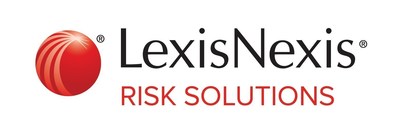PR Newswire
ATLANTA, Aug. 15, 2024
2024 Life Insurance Mortality Risk Management Study shares critical new insights for insurers to improve decision making and enhance automated life applicant reviews, particularly for traditionally high-risk populations with better-than-average mortality risk
ATLANTA, Aug. 15, 2024 /PRNewswire/ -- LexisNexis® Risk Solutions today announced its 2024 Life Insurance Mortality Risk Management Study which reveals new insights on how the integration of medical and non-medical data can significantly enhance the underwriting process for life insurance carriers and improve the application experience for applicants. This new study demonstrates that by analyzing electronic medical data in conjunction with non-medical data, such as public records, driving history, and insurance-focused credit attributes, carriers can better segment applicants and identify new opportunities for accelerated underwriting.
Key Findings and Methodology of the Study
- Enhanced Segmentation Beyond What's Commonplace: Even within populations considered high-risk, the study found segments with better-than-average mortality risk who were found to be suitable candidates for accelerated underwriting. For instance, 10% of applicants with type 2 diabetes and 60% of those with asthma have average or better-than-average mortality risk.
- Improved Decision-Making and More: Leveraging both medical and non-medical data can help carriers reduce mortality slippage, improve consistent decision making across the underwriting process, use structured data to uncover additional automation opportunities, and, ultimately, help improve the close time on the policy process.
- Consumer and Insurer Benefits: Integrating these data sets streamlines the underwriting process and further reduces the need for oftentimes inconvenient and stressful procedures like blood draws and additional medical office visits. This approach benefits insurers by saving time and reducing costs, and benefits consumers by providing a faster, less invasive process that they may be less likely to abandon. Additionally, consumers are afforded greater transparency through the consumer disclosure process and LexisNexis Risk Solutions compliance with the Fair Credit Reporting Act (FCRA).
- Study Methodology: The study analyzed data from a population of 50 million individuals over five years (2018-2022), covering over 1.7 billion medical claim lines, diagnoses, procedures and specialty data.
"Our new study highlights nuanced insights, found through a combination of medical and non-medical data in life insurance underwriting, which reveal that many applicants with conditions traditionally requiring manual review could be candidates for accelerated processes," said Matthew Stull, director of data science, life insurance, at LexisNexis Risk Solutions. "These key new findings have the potential to substantially improve how life insurers assess and triage risk through accelerated underwriting for traditionally high-risk populations with better-than-average mortality risk. By incorporating LexisNexis® Risk Classifier into the life underwriting process, insurers can find cases that would usually require manual review and accelerate them while maintaining accurate risk assessment standards. This is significant because of the benefits for insurers and consumers as it can help reduce costs, improve the overall customer shopping experience and help reach underserved populations who need life insurance."
Notable Findings and Sample Insights: Understanding Medical Risk Profiles
- Type 2 Diabetes: Among 50 million individuals studied, 10% have type 2 diabetes. While traditionally not selected for accelerated underwriting due to a high Standardized Mortality Rate (SMR) of 157%, the study found that 10% of these individuals could be good candidates for accelerated underwriting by combining medical and non-medical data.
- Asthma: With a lower SMR of 114%, asthma represents another condition where data integration can optimize underwriting. The study identified that 60% of applicants with asthma could be suitable for accelerated underwriting.
- Sleep Apnea: For applicants with sleep apnea, having an SMR of 124%, the study revealed that 50% could be candidates for accelerated underwriting when both data sets are considered.
Combining Data for Better Insights
Many life insurance companies often evaluate medical and non-medical data separately, which can lead to missed opportunities for better decision-making when viewed together. While this approach is useful, it may prevent acceleration based solely on medical risk assessments. To address this limitation, a process that simultaneously considers both medical and non-medical data can provide a more comprehensive understanding of an applicant's risk profile.
By leveraging LexisNexis Risk Classifier into life underwriting, which uses non-medical data to generate an insurance score that can be used by carriers to categorize applicants into lower and higher mortality risks, carriers can better identify lower-risk segments that traditional medical data might overlook. This approach supports faster, more accurate decisions, improving the carrier's processes and consumer's experience in applying for life insurance without compromising risk assessment.
Study Methodology
The study analyzed data from a population of 50 million individuals over five years (2018-2022), covering over 1.7 billion medical claim lines, diagnoses, procedures and specialty data. It utilized the LexisNexis Risk Classifier Score, incorporating non-medical data such as driving history, credit records and public records. Standardized Mortality Ratio (SMR) was used to compare mortality risk across various conditions and populations, normalized for gender, age and smoker status.
Download the 2024 Life Insurance Mortality Risk Management Study.
About LexisNexis Risk Solutions
LexisNexis® Risk Solutions harnesses the power of data, sophisticated analytics platforms and technology solutions to provide insights that help businesses across multiple industries and governmental entities reduce risk and improve decisions to benefit people around the globe. Headquartered in metro Atlanta, Georgia, we have offices throughout the world and are part of RELX (LSE: REL/NYSE: RELX, a global provider of information-based analytics and decision tools for professional and business customers. For more information, please visit www.risk.lexisnexis.com, and www.relx.com.
Media Contacts:
Chas Strong
LexisNexis Risk Solutions
Phone: +1.706.714.7083
[email protected]
![]() View original content to download multimedia:https://www.prnewswire.com/news-releases/lexisnexis-risk-solutions-releases-study-uncovering-hidden-risks-and-benefits-through-the-combination-of-medical-and-non-medical-data-that-can-transform-us-life-insurance-underwriting-302223741.html
View original content to download multimedia:https://www.prnewswire.com/news-releases/lexisnexis-risk-solutions-releases-study-uncovering-hidden-risks-and-benefits-through-the-combination-of-medical-and-non-medical-data-that-can-transform-us-life-insurance-underwriting-302223741.html
SOURCE LexisNexis Risk Solutions

